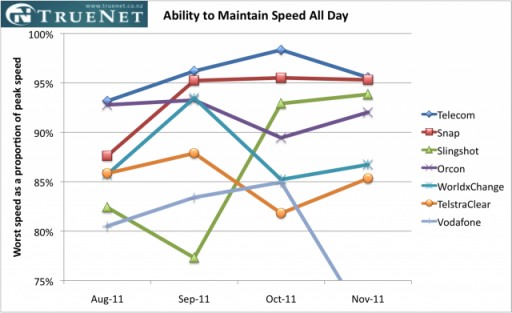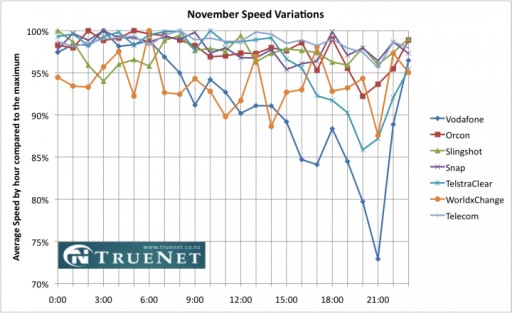Customers of Vodafone and TelstraClear already know that seven o'clock at night is the worst time of day to surf the net and TrueNet figures confirm this.
Both fixed line operators suffer far more network congestion at peak times than their competitors, something TrueNet managing director John Butt suggests this is a significant congestion issue.
"We look at the variation between peak speed and the low point and with Vodafone the drop was most significant at 7pm - they fall to 75% of peak speeds," says Butt.
TelstraClear's service (both on DSL and cable) also falls short at peak time - down to roughly 85% of peak speeds.
"Speed variations by time-of-day are often the consequence of design rules and growth rates. If design limits are too tight or unexpected growth places too much traffic into the capacity available, congestion occurs and speeds reduce," says Butt.
Because time-of-day performance can vary wildly from month to month, TrueNet monitors which ISPs manage this issue the most reliably.
Taken over a four month period the outcome is clear - customers' service can be adversely affected at peak times. This could pose challenges for TelstraClear's proposed "unlimited broadband”, says TUANZ chief executive Paul Brislen.
"It’s important that telcos work out how to give us far more data than we currently get, so from that point of view TelstraClear’s trial run of unlimited broadband is very good news. However we also need to make sure that current customers aren’t impacted by overloading," says Brislen.
In July, TrueNet tested a similar experiment by Snap which found service levels coped well all weekend without noticeable impact.




